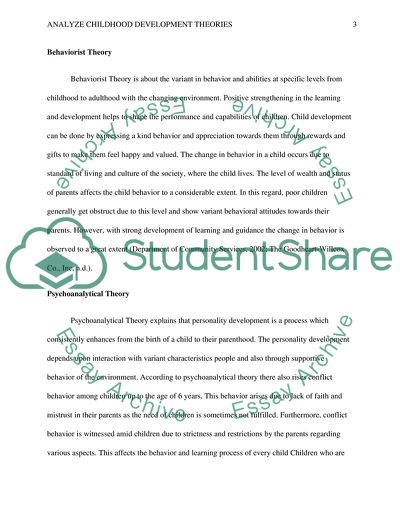Cite this document
(Childhood Development Theories Essay Example | Topics and Well Written Essays - 1500 words, n.d.)
Childhood Development Theories Essay Example | Topics and Well Written Essays - 1500 words. https://studentshare.org/sociology/1838534-analyze-childhood-development-theories
Childhood Development Theories Essay Example | Topics and Well Written Essays - 1500 words. https://studentshare.org/sociology/1838534-analyze-childhood-development-theories
(Childhood Development Theories Essay Example | Topics and Well Written Essays - 1500 Words)
Childhood Development Theories Essay Example | Topics and Well Written Essays - 1500 Words. https://studentshare.org/sociology/1838534-analyze-childhood-development-theories.
Childhood Development Theories Essay Example | Topics and Well Written Essays - 1500 Words. https://studentshare.org/sociology/1838534-analyze-childhood-development-theories.
“Childhood Development Theories Essay Example | Topics and Well Written Essays - 1500 Words”. https://studentshare.org/sociology/1838534-analyze-childhood-development-theories.


